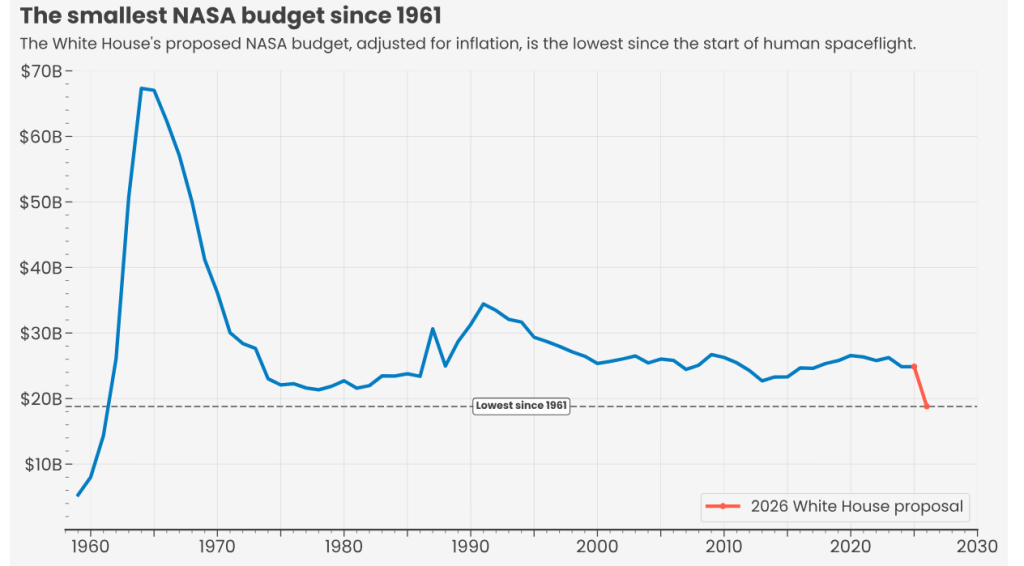Week-end Wrap – Political Economy – October 26, 2025
by Tony Wikrent
Trump not violating any law
‘He who saves his Country does not violate any Law’
Trump Stuns By Saying ‘I Don’t Know’ When Asked Directly NBC’s Kristen Welker ‘Don’t You Need to Uphold the Constitution?’
Joe DePaolo, May 4th, 2025 [mediaite.com]
ICE Agents Can Now Be Arrested in Chicago
[Migrant Insider, via Naked Capitalism 10-21-2025]
A FEDERAL JUDGE IN CHICAGO RULED last Wednesday that starting this week ICE agents can now face arrest and contempt proceedings if they conduct unlawful, warrantless arrests, marking a dramatic shift in immigration enforcement oversight in the city.
U.S. District Judge Jeffrey Cummings found that ICE agents violated the terms of a consent decree by detaining people without proper warrants, following a surge in such arrests amid increased enforcement activity. According to the judge’s order, ICE agents must now wear body cameras and have them turned on. They also cannot arrest anyone complying with their appointment dates at immigration courthouses.
Letters from an American, October 23, 2025
Heather Cox Richardson, Oct 24, 2025
Julia Ainsley and Didi Martinez of NBC News reported today that Immigration and Customs Enforcement’s rush to get new recruits onto the street has meant they have pushed into their training program more than 200 people who have disqualifying criminal backgrounds, fail drug testing, or don’t meet the academic or physical requirements.
The budget reconciliation measure the Republicans passed in July—the one they call the “One Big, Beautiful Bill Act”—included more than $170 billion over four years for immigration and border security. The law tripled ICE’s annual budget, giving it “more than the annual expenditures on police by state and local governments in all 50 states and the District of Columbia combined,” according to Margy O’Herron of the Brennan Center, a nonpartisan pro-democracy law and policy institute.
Part of that money was to hire about 10,000 deportation officers. As O’Herron notes, a 2017 report by the Department of Homeland Security Office of Inspector General found that to hire 10,000 officers would require vetting 500,000 applicants….
In August, ICE began to offer a $50,000 signing bonus and got rid of its age limits. To fill the ranks, Ainsley and Martinez note, ICE has already shortened its training program from 13 weeks to 6. They report that nearly half of those dismissed from ICE over the past three months could not pass an open-book exam. Others could not run 1.5 miles in less than 14 minutes, 25 seconds, or do 15 push-ups and 32 sit-ups.
Sociologist Ian Carillo called attention to a 2020 article by political scientists Adam Scharpf and Christian Glässel looking into why secret police agents are often “surprisingly mediocre in skill and intellect.” By examining the 4,287 officers who served in autocratic Argentina from 1975 to 1983, they discovered that the ranks of secret police are filled by those who perform poorly in merit-based systems. Facing firing for their poor performance, they turn to more burdensome secret police work.
Today Illinois governor J.B. Pritzker established the “Illinois Accountability Commission” to compile evidence against federal agents who have harassed, intimidated, brutalized, and detained American citizens and legal residents in Illinois. “None of this is about crime or safety,” Pritzker said. “If it were, there would be coordination with local law enforcement and judicial warrants…. Under normal circumstances,” he said, “federal agency supervisors and inspectors general would enforce proper legal procedures and protocols and hold accountable those who violate them.” But Trump has fired 17 inspectors general and installed cronies at the Department of Justice, while MAGA congress members refuse to hold hearings or conduct oversight. Administration officials are acting as if they are “immune from investigation or accountability,” Pritzker said “They are not.”
‘Evil, Fascist, Wannabe Authoritarian’ Stephen Miller Threatens IL Gov. Pritzker With Arrest
Jessica Corbett, October 25, 2025 [CommonDreams]
…Trump himself has called for jailing Pritzker and Democratic Chicago Mayor Brandon Johnson “for failing to protect” ICE officers. Priztker, a billionaire and potential 2028 presidential candidate, has suggested Trump should be removed from office via the 25th Amendment to the US Constitution.
Miles Taylor, who served as Department of Homeland Security chief of staff during the first Trump administration and authored an infamous, anonymous 2018 New York Times editorial, said Friday, “Feels like we’re going down the rabbit hole pretty fast here, folks.”
California state Sen. Scott Weiner (D-11), one of the Democrats running for former House Speaker Nancy Pelosi’s seat in the next cycle, said: “They’re now explicitly taking the position that state and local elected officials are committing crimes when they attempt to protect their communities from the ICE secret police.”….
ICE boosts weapons spending 700%
[Popular Information, via Naked Capitalism 10-21-2025]
“…there have also been significant purchases of chemical weapons and “guided missile warheads and explosive components.”
[TW: What does ICE want guided missile warheads for?]
Did Donald Trump Nearly Get Hakeem Jeffries Killed?
Peter Rothpletz, Oct 22, 2025 [Zeteo]
Yesterday, one of the men Trump freed from accountability was arrested for allegedly plotting to murder the House minority leader.
A story in three parts.
“I will kill him for the future,” 34-year-old Christopher Moynihan stated via text, according to New York court records. “Hakeem Jeffries makes a speech in a few days in NYC I cannot allow this terrorist to live,” he went on.
“Even if I am hated he must be eliminated.”
Mike Johnson Says No Kings Protest Is Worse Than Threats on Jeffries
Ellie Quinlan Houghtaling, October 21, 2025 [The New Republic]
House Speaker Mike Johnson brushed off assassination threats against Minority Leader Hakeem Jeffries Tuesday, claiming that—despite the wannabe assassin’s conservative politics—the left is still at fault….
…Johnson chose to throw the responsibility back at America’s ideological left.
“I will tell you this, the violence on the left is far more prevalent than the violence on the right,” Johnson said Tuesday. “The assassination culture that’s been advanced now—this is the left, in almost every case that is advancing this, and not the right. Let’s not make this a partisan issue, you don’t want me to go there.
“The rhetoric that you saw on display Saturday, we highlighted yesterday, it plays into this. There are people that get triggered—there are deranged people in society when they hear elected officials participating in a rally that was paid for by [George] Soros and sponsored by Communists, with signs and placards and mantras that were repeated that, ‘We should bring death to fascist politicians.’ They call every Republican a fascist now,” Johnson said, referring to the peaceful No Kings protests that took place across the country this past weekend….
Trump “National Police Force” Built on ICE Partnerships With Local Agencies Like… Wildlife Commissions?
Akela Lacy, October 20 2025 [The Intercept]
In addition to deploying tens of thousands of federal agents from across the federal government to carry out his deportation agenda, President Donald Trump is rapidly expanding the network of state and local police going after immigrants through partnerships with U.S. Immigrations and Customs Enforcement.
The aggressive, nationwide law enforcement regime, all taking place under orders from the White House, amounts to what scholars, attorneys, and now a federal judge say are steps toward the creation of a national police force. And the ranks of ICE partners won’t be filled with just local cops: In at least three states, the administration is joining forces with agencies typically tasked with environmental and marine protection, lottery control, and gaming to target immigrants….
“No Kings” Protest (and Arrests) Have Begun
Ken Klippenstein. “NSPM-7 is already being used to detain protesters over speech.”
Trump Said to Demand Justice Dept. Pay Him $230 Million for Past Cases
[New York Times, via Naked Capitalism 10-22-2025]
Rubio promised to betray U.S. informants to get Trump’s El Salvador prison deal
[WaPo, via Naked Capitalism 10-20-2025]
The Man Who Wants You Dead — Trump’s Golem Stephen Miller Wants to See Your Blood in the Streets.
Malcolm Nance, Oct 21, 2025 [Black Man Spy]
Every Thursday afternoon I do a Substack live with Michael Cohen (@therealmichaelcohen) and Lev Parnas (@levparnas) we call “Unleashed”. I amusingly refer to it as “Two Felons and a Spy.”
These two men have a decade and a half of experience working directly for Donald Trump on a day-to-day basis: Cohen as Trump’s personal lawyer and Parnas as his Russia-Ukraine fixer on the project that got Trump impeached. They both suddenly found themselves and their integrity by turning against Trump when investigated for charges of fraud.
But no good deed goes unpunished, and Trump’s Department of Justice quickly prosecuted both of them….
Of all the people who are on the never-Trump train, these two have special insight that no other people in the never-Trump world have. They know what is in Trump’s mind, and they also know all of his cabinet members personally. So when Parnas and Cohen speak, I listen very, very carefully.
In the continued discussions about the rising levels of rhetoric equating the Democratic Party to violent extremism. I had to pose one question:
Will Trump order violence against Americans?
Cohen was unequivocal, “No. He won’t. That’s not the way he operates. He does nothing directly.” Lev Parnas agreed that Trump himself is a coward and won’t order violence with the words coming out of his mouth, “Go kill people.”
But … they added a caveat.
They both agree that Trump will let someone else order the killing for him.
A few weeks ago, I asked them, “Who in the administration will get Trump to issue the order that will result in killing Americans?”
Almost simultaneously, they both said, “Stephen Miller.”
Officials Plot to Have Trump Declare National Emergency in 2026, Raising Fears He May ‘Hijack’ the Next Election
Stephen Prager. Oct 23, 2025 [CommonDreams]
Read More


 It is now over 20 years ago that I first wrote that Israel would either become a single, secular state, or it would ethnically cleanse or genocide the Palestinian. There were no other solution sets: the land is not actually large enough, nor does it have enough water to divide it into two states and in any case, it was obvious Israelis would never go for that.
It is now over 20 years ago that I first wrote that Israel would either become a single, secular state, or it would ethnically cleanse or genocide the Palestinian. There were no other solution sets: the land is not actually large enough, nor does it have enough water to divide it into two states and in any case, it was obvious Israelis would never go for that.